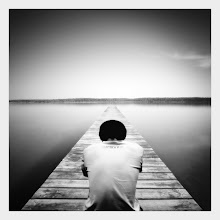
In recent times, some thinkers have postulated that modern friendships have lost the force and importance that they had in antiquity. C. S. Lewis for example, in his The Four Loves, writes,
To the Ancients, Friendship seemed the happiest and most fully human of all loves; the crown of life and the school of virtue. The modern world, in comparison, ignores it. We admit of course that besides a wife and family a man needs a few 'friends'. But the very tone of the admission, and the sort of acquaintanceships which those who make it would describe as 'friendships', show clearly that what they are talking about has very little to do with that Philia which Aristotle classified among the virtues or that Amicitia on which Cicero wrote a book.
Likewise, Paul Halsall claims that,
The intense emotional and affective relationships described in the past as "non-sexual" cannot be said to exist today: modern heterosexual men can be buddies, but unless drunk they cannot touch each other, or regularly sleep together. They cannot affirm that an emotional affective relationship with another man is the centrally important relationship in their lives. It is not going too far, is it, to claim that friendship - if used to translate Greek philia or Latin amicita - hardly exists among heterosexual men in modern Western society.
Mark McLelland, writing in the Western Buddhist Review under his Buddhist name of Dharmachari Jñanavira (Article), more directly points to homophobia being at the root of a modern decline in the western tradition of friendship:
Hence, in our cultural context where homosexual desire has for centuries been considered sinful, unnatural and a great evil, the experience of homoerotic desire can be very traumatic for some individuals and severely limit the potential for same-sex friendship. The Danish sociologist Henning Bech, for instance, writes of the anxiety which often accompanies developing intimacy between male friends: The more one has to assure oneself that one’s relationship with another man is not homosexual, the more conscious one becomes that it might be, and the more necessary it becomes to protect oneself against it. The result is that friendship gradually becomes impossible.
Their opinion that fear of being, or being seen as, homosexual has killed off western man's ability to form close friendships with other men is shared by Japanese psychologist Doi Takeo, who claims that male friendships in American society are fraught with homosexual anxiety and thus homophobia is a limiting factor stopping men from establishing deep friendships with other men.
Recent western scholarship in gender theory and feminism concurs, as reflected in the writings of Eve Sedgwick in her The Epistemology of the Closet, and Jonathan Dollimore, in his "Sexual Dissidence and Cultural Change: Augustine to Wilde, Freud to Foucault


No comments:
Post a Comment